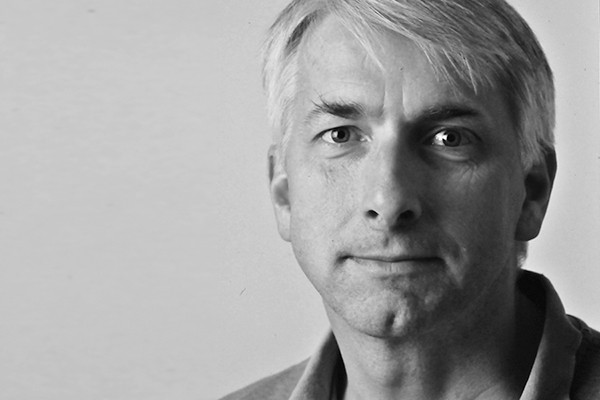 Business professor emeritus and million-dollar donor David Wilson gets instruction in operating a backhoe from Chris Weller, president of Alliance General Contracting.
Business professor emeritus and million-dollar donor David Wilson gets instruction in operating a backhoe from Chris Weller, president of Alliance General Contracting.
A million-dollar donation by UWindsor professor emeritus and Faculty of Business alumnus David Wilson (B.Comm 1961), is the impetus behind groundbreaking on a new crossroads and gathering place in the heart of the University of Windsor's main campus.
At a naming event Friday, UWindsor president Alan Wildeman announced the David A. Wilson Campus Commons will replace a former parking lot on Sunset Avenue with a basketball court, performance stage, meeting and gathering spots, and new landscaping and lighting for the enjoyment of the entire campus community. Professor Wilson’s gift will also support scholarship and awards endowments.
Wilson, formerly chair of the Faculty of Business’s accounting area, has continued to keep close ties with the University since leaving to become chief executive of the Institute of Chartered Accountants of Ontario, from which he retired as president in 2001. For his contributions to the University during and after his teaching years, he received the Clark Award in 2011.
“The University of Windsor is incredibly grateful for Professor Wilson’s support over the years and especially for this newest gift,” Dr. Wildeman said. “His contributions are all the more remarkable since he moved from Windsor many years ago and currently resides in Dublin, Ireland. He has never forgotten his community and the University of Windsor. By giving back, he is making both a better place.”
Wilson is widely recognized for his philanthropy, both at the University of Windsor and in the wider community. He was named Outstanding Philanthropist in 2015 by the Canada South Chapter of the Association of Fundraising Professionals in recognition of his support of such causes as both the Big Brothers/Big Sisters national organization, and the Big Brothers/ Big Sisters Windsor Essex agency.
In addition to several endowments and other gifts to Big Brothers/Big Sisters dating from the mid-1980s to 2014, Wilson sponsored the creation of the national body’s charitable foundation. In 2015, he committed the first $300,000 of a $500,000 donation to the Windsor Essex agency, about $150,000 of which was used to refurbish its Jefferson Avenue property, now called the David A. Wilson Park; the $350,000 balance funds an endowment in his name—its earnings will support in perpetuity the mentoring programs the agency provides to the Windsor-Essex community.
In addition to providing significant support toward the cost of developing the new David A. Wilson Campus Commons, a portion of Wilson’s new UWindsor gift will honour Allan Conway, retiring dean of the Odette School of Business, and will support the Professors Jack Freeman and David Wilson Excellence in Accounting Awards.
In addition, a significant portion of the funds will be added to the Isabel and David Wilson Nursing Scholarships Endowment. It, along with the Marilyn and Sandy Wilson Nursing Scholarship Endowment, were organized following his sister-in-law Marilyn’s death. Marilyn, as a student nurse, was assigned to Sandy and Dave’s mother and the two endowments honour the importance of the nurse-patient relationship.
“There is a clear, two-part philosophy behind my gifts to the University and other worthy causes,” Wilson says. “One is that to the extent you can do so, it’s a joy to give while you live. The other is that every gift is as important as any other gift, regardless of its size, as long as it is proportionate to the giver’s means. When people hear about organizations receiving large gifts, they may think that their gift is no longer needed. That will rarely if ever be the case. Good causes will always need broad, continuing support if they are to successfully serve the community.”




